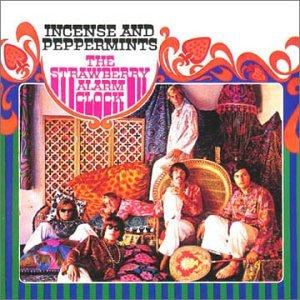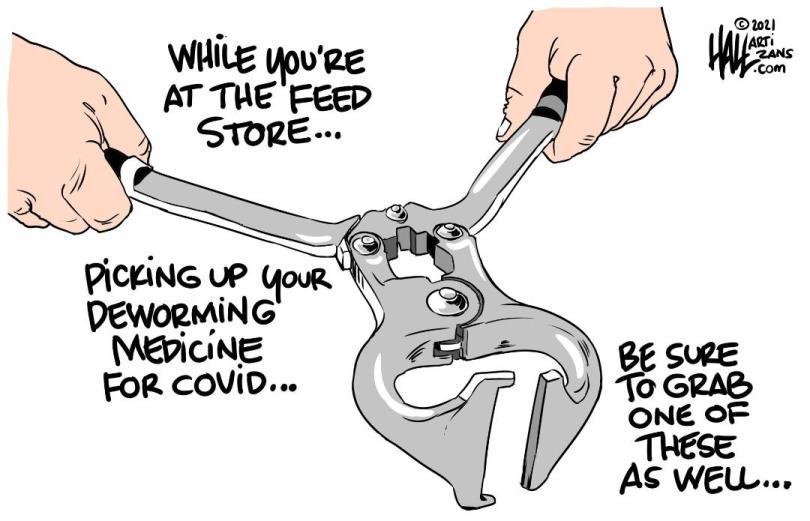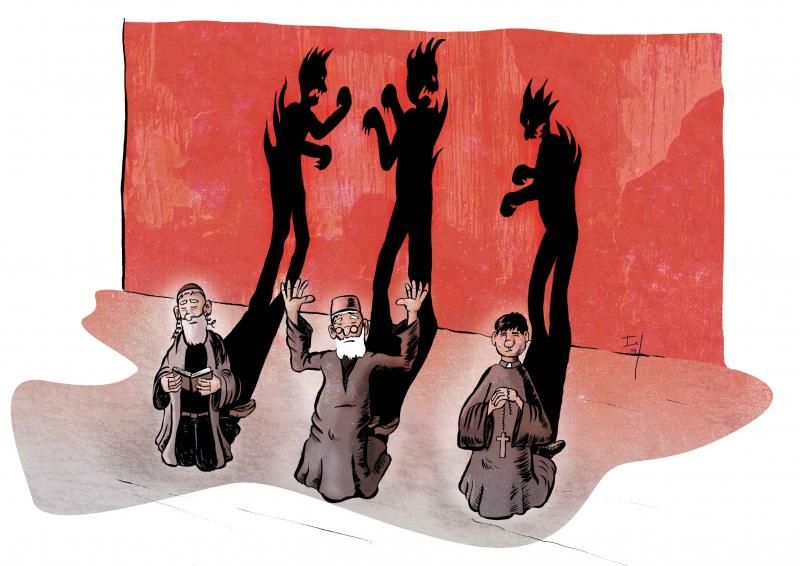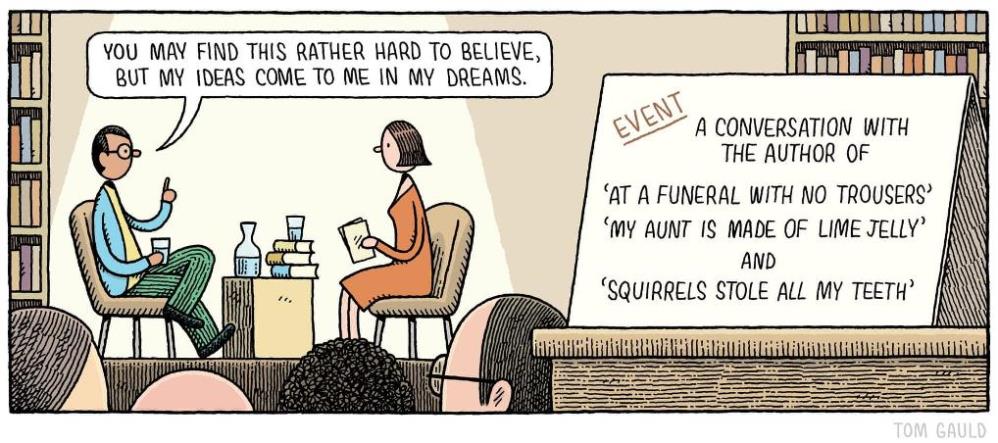![]()
![]()
from Bruce
Anecdotes
Money
• Babe Ruth occasionally got in trouble for breaking training and staying out too late. For example, in 1925, he was fined $5,000 late in the season for just those reasons. He also hit only .290—a low average for him. However, in 1926, he had a great season and hit .372. His manager, “Hug” Huggins, told him, “Babe, I admire a man who can win over a lot of tough opponents, but I admire even more a man who can win over himself.” Mr. Ruth replied, “That’s fine, Hug—do I get the fine back?” Mr. Huggins, who seldom wasted words, answered, “No.”
• If you pay for a ticket, you are entitled to express your opinion. After the Notre Dame football team was held to a tie by a much weaker team, a man accosted coach Knute Rockne and told him, “What’s the matter with your team? It stinks!” Mr. Rockne asked the man if he had paid to see the game. The man dug in his pocket and pulled out a ticket. Mr. Rockne looked at the ticket, then replied to the man, “You’re right. We stink.”
• Heavyweight champion Joe Louis lost very few fights, either as an amateur or as a pro fighter, but when he was an amateur, he lost a decision to Max Marek. No fool, Mr. Marek cashed in on his victory after Mr. Louis became a champion. Mr. Marek opened a bar and grill in Chicago, and he put a big sign out front inviting people to come in, enjoy themselves, and shake hands with Mr. Marek—“The Man Who Beat Joe Louis.”
• Famous racehorse Man o’ War was worth a fortune, and Texas oilman W.T. Waggoner wanted to buy the stallion from Sam Riddle and even offered a blank check as payment. Mr. Waggoner told him, “You go to France and bring back the sepulcher of Napoleon. Then go to England and buy the jewels from the crown. Then go to India and buy the Taj Mahal. Then, Mr. Waggoner, I’ll put the price on Man o’ War.”
• On June 3, 1932, New York Yankee Lou Gehrig hit four home runs in one game against the Philadelphia Athletics. This made him the first major-league player in the 20th century to accomplish such an impressive feat. Afterward, the other Yankees teased Mr. Gehrig, saying that he was costing the American League too much money due to replacing the baseballs he hit for home runs.
• One day, Muhammad Ali was speeding on a Los Angeles highway. A police officer stopped him and gave him a $100 speeding ticket. Mr. Ali immediately wrote a check and gave it to the police officer, who looked at it and said, “Mr. Ali, there’s been a mistake. The ticket is for only one hundred dollars. You made this out for two hundred dollars.” Mr. Ali replied, “I still have to come back.”
• Dodger co-owner Branch Rickey was tight with team money. Joe Medwick says that he once dominated the league in hitting, leading in 12 out of 13 hitting departments. Of course, he wanted a big raise. How did Mr. Rickey respond? By cutting Mr. Medwick’s salary by $5,000. Mr. Medwick asked, “How can you do this?” Mr. Rickey replied, “I expected you to hit .374 again.”
• Rube Foster was a tough manager in the Negro Leagues. He carried a pipe (for smoking) that he used to make signals, and when a player ignored his signal to bunt and instead hit a triple in a game, Mr. Foster was not happy. As soon as he could, he hit the player in the head with his pipe, and then told him, “As long as I’m paying you, you’ll do what I tell you.”
Mothers
• Martina Hingis’ mother (and coach), Melanie Molitor, raised her to be a tennis star. Not only did Ms. Molitor name Martina after her favorite tennis star, Martina Navratilova, but she also did everything she could to make her daughter interested in tennis. For example, when Martina was only two years old, her mother gave her a special tennis racket—a light one that was for adults but with a specially shaved-down handle that allowed Martina to grasp it. Ms. Molitor would throw tennis balls toward her daughter, and her daughter would try to hit them back. By age 10, Martina was embarrassed because she was beginning to beat her mother in tennis games and so she wanted to play left handed against her so her mother would win.
***
© Copyright Bruce D. Bruce; All Rights Reserved
***
The Funniest People in Sports, Volume 2: 250 Anecdotes — Buy
The Funniest People in Sports, Volume 2: 250 Anecdotes — Buy the Paperback
The Funniest People in Sports, Volume 2: 250 Anecdotes — Kindle
The Funniest People in Sports, Volume 2: 250 Anecdotes — Apple
The Funniest People in Sports, Volume 2: 250 Anecdotes — Barnes and Noble
The Funniest People in Sports, Volume 2: 250 Anecdotes — Kobo
The Funniest People in Sports: 250 Anecdotes — Smashwords, Volume 2: Many Formats, Including PFD
Presenting
Michael Egan






 In memory.
In memory.


BRUCE'S RECOMMENDATION
BANDCAMP MUSIC
BRUCE'S RECOMMENDATION OF BANDCAMP MUSIC
Music: "Surf, Rock, Beach, Party, UFO"
Split Single: Bearcats / Horrible Adorable Split
Artist: Horrible/Adorable
Artist Location: Oakland, California
Record Publisher: Yr First Crush
Record Publisher Location: Oakland, California
Record Publisher Motto: “I put out compilations, singles, and zines from time to time.”
Info: “Two Girls Who Like to Rock Out”
Price: Name Your Price (Includes FREE)
Genre: Girl Group. Surf.
Links:
Bearcats / Horrible Adorable Split
Yr First Crush
Horrible/Adorable on Bandcamp
Horrible/Adorable on YouTube
Other Links:
David Bruce's Amazon Author Page
David Bruce's Smashwords Page
David Bruce's Blog #1
David Bruce's Blog #2
David Bruce's Blog #3
David Bruce's Apple iBookstore
David Bruce has over 140 Kindle books on Amazon.com.

Reader Suggestion
Michelle in AZ



Bonus Links
Jeannie the Teed-Off Temp

Reader Comment
Current Events







Linda >^..^<
We are all only temporarily able bodied.
Thanks, Linda!


that Mad Cat, JD

In The Chaos Household
Last Night
The back story on the defective rooster - I have a lovely, sweet neighbor, Noeli, and the rooster is hers.
Noeli grew up very, very poor in the Philippines during WWII - her stories are heart breaking, and one of the worst involved a pet rooster.
She loved that rooster - she explained that hearing her rooster crow meant two things - there was a new day and there was something left to eat.
Noeli now has dementia, lives at home with her husband & son, and in an effort to make Noeli happy, they bought a couple of chickens & the defective rooster. Another neighbor's dog ate the chickens, but the rooster survived.
Just like the rooster, Noeli doesn't know if it's day or night, but everytime he crows, she smiles and calms down.
And that damn rooster makes Noeli happier than anything on heaven or earth.
So while I might bitch about the defective rooster, I love that little bastard!

Rhodes Scholar
“Dreamer”
The first “Dreamer” to be awarded a prestigious Rhodes Scholarship is finally poised to attend the University of Oxford after years of uncertainty about whether the U.S. would allow him to return home as a DACA recipient.
Federal immigration officials last week approved Jin Park’s application to travel to England in the coming weeks, according to his law firm WilmerHale in Boston.
Park, whose family immigrated from South Korea when he was 7 years old, will be joined at Oxford by Santiago Potes, a Miami resident and 2020 graduate of Columbia University in New York who became the second American on DACA status to be awarded a Rhodes Scholarship last November, according to the Rhodes Trust.
Potes, who graduated from Columbia with degrees in East Asian studies and Medieval and Renaissance studies, hopes to use his time at Oxford to “give back to the United States, which has given me every opportunity to succeed.”
Park, who currently attends Harvard Medical School in Boston, declined to comment Friday until he officially receives a copy of the approval from U.S. Citizenship and Immigration Services.
“Dreamer”

Arc de Triomphe To Be Wrapped
Christo
The Arc de Triomphe has seen parades, protests and tourists galore, but never before has the war monument in Paris been wrapped in silver and blue recyclable polypropylene fabric. That’s about to happen next month in a posthumous art installation designed by artists Christo and Jeanne-Claude.
“Christo has wrapped museums, parliaments as in Germany, but a monument like this? Not really. This is the first time. This is the first monument of this importance and scale that he has done,” Vladimir Yavachev, the late collaborating couple’s nephew, told The Associated Press.
Preparations have already started on the Napoleon-era arch, where workers are covering statues to protect them from the wrapping.
The idea for “L’Arc de Triomphe, Wrapped,” was formed in 1961, when Christo and Jeanne-Claude lived in Paris. Jeanne-Claude died in 2009, and in spite of Christo’s death in May 2020, the project carried on.
The 14 million-euro ($16.4 million) project is being self-financed through the sale of Christo’s preparatory studies, drawings, scale models, and other pieces of work, Yavachev said.
Christo
Gun Sells For $6 Million
Billy the Kid
The gun that killed American Wild West outlaw Billy the Kid sold for more than $6 million at auction on Friday in Los Angeles, more than double the pre-sale estimate.
Bonhams auctioneers said the Colt single-action revolver that Sheriff Pat Garrett used to take down Billy the Kid in 1881 was bought over the phone by a person who wished to remain anonymous.
Bonhams, which described the gun as "the most iconic treasure of early Western history," said the $6.03 million price was a world record for any firearm. It had been expected to fetch between $2 million and $3 million.
The gun came from the collection of Texas couple Jim and Theresa Earle, who amassed Western firearms and other artifacts for some 50 years. Jim Earle died in 2019.
Billy the Kid

Backdrop for ‘Airwolf’
Desert Center
On a lonely stretch of desert road smack dab between Phoenix and Los Angeles sits a tiny town (population 216!) consisting of a handful of storefronts straddling a solitary block just steps from Interstate 10. Cars still regularly pull off the freeway and into the gas station there, though the pumps haven’t been filled with petrol in years. A sign in the café window reads, “We apologize for being closed temporarily for building maintenance,” though one look through the chalky windows and it’s clear the “temporary” shuttering is anything but.
Desert Center, as it is known, has been compared to both the charming Route 66 hamlet of Radiator Springs from “Cars” and the treacherous Nevada town from “The Hills Have Eyes,” but the truth of the place lies somewhere in between.
The remote site was the brainchild of preacher Stephen Ragsdale, who fortuitously broke down in the area while traveling from his hometown of Palo Verde Valley to Los Angeles in 1915. Upon being rescued and towed to a mechanic by a local landowner, an idea was born. Figuring the region needed a decent rest stop, Ragsdale purchased the good samaritan’s acreage and, along with his wife Lydia, proceeded to build a gas station, auto repair shop and restaurant along the dusty main drag which became known as Ragsdale Rd.
Desert Center was officially founded in 1921 and just as Stephen, who took to calling himself “Desert Steve,” had envisioned, it evolved into a popular pit stop for travelers making their way between California and Arizona. The entire Ragsdale clan had a hand in the operation. As historian Steve Lech told The Press-Enterprise, “He [Stephen] would run the tow truck and pump gas. His wife would run the cafe and do the cooking. He had two sons and a daughter and they would do auto repairs and work at the center.”
Incredibly, the town remained in the Ragsdales’ hands up until just last month when its 1,034.78 acres were sold for $6.25 million to Balwinder S. Wraich, a transport company owner based in Riverside. The selling price might seem scant for an entire town, but by the time of the transaction, the place had become a virtual shell of its original self.
Desert Center
'Forever Prisoners'
39 Remain
Last month, the Biden administration released a Moroccan man who had been held at Guantánamo Bay for nearly two decades without ever being charged with a crime.
Abdul Latif Nasser arrived at the Guantánamo Bay detention camp in Cuba in 2002. The US accused him of being involved with the Taliban, but charges were never brought against him and he was cleared for release in 2016.
Nasser was one of many detained at Guantánamo without ever being charged with a crime. Of the 39 detainees that remain, 27 are held as Nassar was: as law-of-war detainees without charge or trial, according to The New York Times.
"They're called forever prisoners, because they'll be held forever," Mark Denbeaux, a lawyer and law professor at Seton Hall University School of Law, told Insider, referring to those who have not been cleared for release.
39 Remain

Fossils Seized in Police Raid
Brazil
Limestone slabs recovered in a 2013 police raid in Brazil have revealed the most complete fossil of a species of pterosaur ever found, providing new details about how the flying reptile might have looked and behaved 110 million years ago.
The discovery also brings attention to the issue of scientific colonialism — the removal (and sometimes outright theft) of items of scientific value from their countries of origin by fossil traders or more developed nations. According to the authors of a new report about the fossil, Brazil and other countries that have historically had their fossils smuggled or taken to other countries now have the infrastructure to responsibly handle and study them — and should accrue benefits such as scientific discovery and tourism that come with a rich national cache of fossils.
The raid, at a harbor near São Paulo, led to the confiscation of about 3,000 fossils, including many fish and insects, according to Victor Beccari, a graduate student and lead author of the study, published this week in the journal PLOS ONE. The centerpiece was the almost-complete skeleton from the pterosaur species, Tupandactylus navigans, preserved in six limestone slabs.
Pterosaur fossils are rare. Their bones are extremely fragile, even more so than birds, the researchers say.
Brazilian authorities had to sort out legal issues about exactly where the fossil should be sent. It was found in the northeastern part of Brazil but was seized in São Paulo, in the southeastern part of the country. It was eventually given to the University of São Paulo, and in 2016, Beccari, then an undergraduate, and a team of researchers began studying it.
Brazil
Power Grab
California
The wine bill alone apparently came to $12,000. Last November, when California was under a partial lockdown, Gavin Newsom was caught breaking his own rules and celebrating a lobbyist friend’s birthday at the French Laundry, an uber-expensive Michelin-starred restaurant. The Democratic governor’s night at the French Laundry didn’t just stain his reputation, it may have ended his political career. Nobody likes a hypocrite and anger over Newsom’s fancy night out helped fuel Republican-led efforts to oust him. A special gubernatorial recall election is currently under way and there’s a very real chance that, in a couple of weeks, Newsom might lose his job to Larry Elder, a rightwing radio host with some terrifying views and a long history of misogynistic comments.
California is a deeply blue state where Democrats outnumber Republicans almost two to one. How on earth is it possible that Newsom, who is still very popular, might get replaced by a Republican? Because of the weird way that California’s gubernatorial recall elections work, basically. Voters are asked two questions. The first is whether they want to recall Newsom or not. If a majority say yes, then he’s out. The candidate that gets the most votes on the replacement ballot is in. It’s a democratic process with the potential for a very undemocratic result.
Perhaps you don’t live in California or the United States. Perhaps you think none of this really affects you. It does, I’m afraid. It really does. California is the fifth-largest economy in the world: the person running it matters immensely. While a replacement governor would serve for just over a year (Newsom’s term ends in January 2023), that’s still enough time for someone to do a lot of damage.
There’s also a “doomsday scenario” that is weighing at the back of some Democrats’ minds. The Senate is currently split 50-50 between Republicans and Democrats; Kamala Harris gets the tie-breaking vote. One of California’s senators is Dianne Feinstein, a Democrat who is 88 years old. (The average life expectancy in the US for women, by the way, is 81 years old.) If she needed to step down for health reasons before the end of her term, the governor of California would appoint her replacement. And if a Republican gets appointed then the Senate would be back under GOP control. That’s not inevitable, by the way. If Newsom loses, Feinstein has the opportunity to step aside before the new governor is sworn in – however she has said she has no intention of doing that. Can’t put the greater good ahead of your career, you know! And while the odds of this doomsday scenario happening are slim, recent years should have taught us that we ought to be prepared for anything.
I’ve got a feeling that, in the end, Newsom will probably cling on to power. But that’s not really something to celebrate either. This recall election is going to end up costing $276m. That may only be five bottles of wine at the French Laundry for the likes of Newsom; but for normal people, it’s a colossal waste of money that is desperately needed for other things. The election is also a depressing reminder that the Republicans are incredibly good at finding sneaky ways to get into power and hold on to it. The power-grab in California is just a small taste of things to come.
California

New Chief Chaplain An Atheist
Harvard
Harvard University, which was founded with a mission to educate a clergy who would minister to the early puritan pilgrims in New England, has its first head chaplain who expounds no belief in any kind of god.
Greg Epstein, a humanist who has served as a humanist chaplain at Harvard since 2005, has helped establish humanism as a well-funded and highly visible element among the institution’s numerous religious organisations, some of which go back to the university’s very beginnings. He was elected to the presidency of the university’s organisation of chaplains by its 30-plus members, who represent multiple faiths and denominations – overwhelmingly theistic ones.
As he said in a New York Times profile published as his election was announced, Mr Epstein takes an active role as a chaplain at both Harvard and MIT, and that he has a particular appeal for “religious refugees” – that is, “people raised in observant households who arrive at college seeking spiritual meaning in a less rigid form”.
Mr Epstein is the author of Good Without God: What a Billion Nonreligious People Do Believe, which is framed as a humanist reaction against the “hostility and intolerance” of works by combative leading “new atheists” such as Richard Dawkins and Christopher Hitchens.
Harvard
All the Time
Online Trolls
The internet doesn’t turn people into assholes so much as it acts as a massive megaphone for existing ones, according to work by researchers at Aarhus University.
In a study published in the American Political Science Review, the researchers used representative surveys and behavioral studies from the U.S. and Denmark to establish the reason why people broadly perceive the online environment as more hostile than offline interaction.
The team considered the mismatch hypothesis, which in the context of online behavior refers to the theory that there is a conflict between human adaptation for face-to-face interpersonal interaction and the newer, impersonal online environment. That hypothesis more or less amounts to the idea that humans who would be nicer to each other in person might feel more inclined to get nasty when interacting with other pseudonymous internet users. The researchers found little evidence for that.
Instead, their data pointed to online interactions largely mirroring offline behavior, with people predisposed to aggressive, status-seeking behavior just as unpleasant in person as behind a veil of online anonymity, and choosing to be jerks as part of a deliberate strategy rather than as a consequence of the format involved. They also found some evidence that less hostile people simply aren’t as interested in talking about politics on the internet. These results were similar in both the U.S. and Denmark, even though the two countries have very different political cultures with differing levels of polarization. (For example, a hostile far-right mob organized on social media didn’t recently storm the Danish Parliament.)
“We found that people are not more hostile online than offline; that hostile individuals do not preferentially select into online (vs. offline) political discussions; and that people do not over-perceive hostility in online messages,” the researchers wrote. “We did find some evidence for another selection effect: Non-hostile individuals select out from all, hostile as well as non-hostile, online political discussions.”
Online Trolls

| CURRENT MOON lunar phases |


